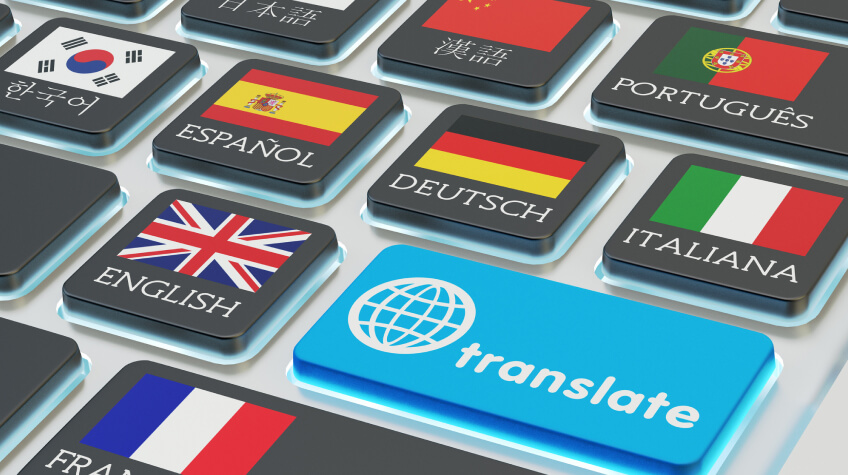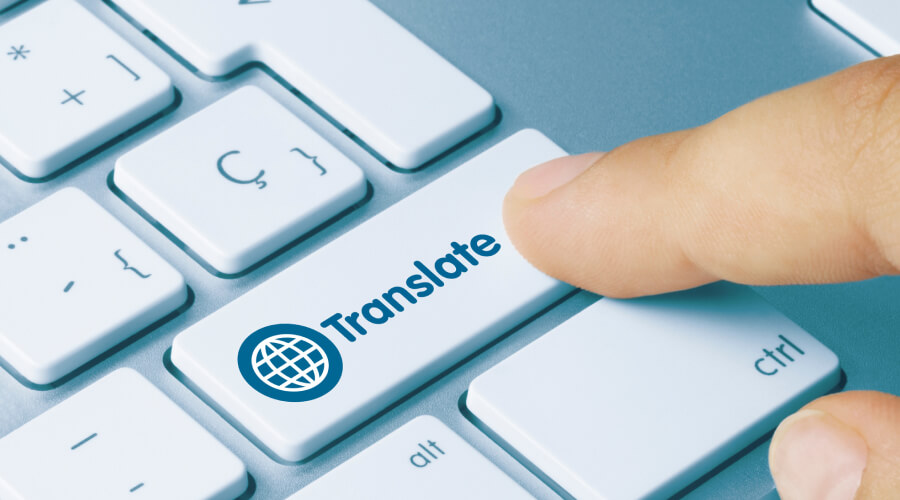
Have you been thinking of selling your products or services to international customers? If implemented properly, globalization can benefit your business in various ways, including maximizing revenue and profit. Another benefit of running an international company is that it allows you access to a wide pool of talented workforce. You can connect with skilled and experienced employees that can translate your eCommerce website and can be hard to find within your locality or home country.
Building a company website is one of the great ways to run a global business. It allows you to enhance your global visibility, increase your reach and connect with many potential prospects. As such, you can generate more quality leads and make more sales.
Today, English is the most frequently used language for website content. However, only a small percentage of people worldwide can speak or understand English. You might not connect with many customers if you don’t translate your e-commerce website.
Steps to Translate eCommerce Website
There are several steps to follow to translate your eCommerce website. They include the following:
1. Select Website Translation Software
The first step when translating a business website is to choose translation software. This refers to an app localization tool you can use to modify existing website content to make it accessible and culturally suitable to your target customers. It can help translate the website from English to Chinese, French, Japanese, Arabic, etc.
The translation tool you select should have a simple user interface to enhance the user’s experience. Plus, such software will help increase the company’s overall productivity. Besides, select a localizing tool that accommodates your budget without compromising quality.
2. Build The Right Website Translation Team
Once you choose the web translation website, the next thing is to choose a team that’ll help with translation. The number of people you hire will depend on your workload. For instance, if you want to translate web content into many languages, you may need to hire many people.
There are three main options for choosing your web translation team. You can work with an in-house team, hire freelancers or contract a translation agency. Each of these options has its pros and cons. While an in-house team may better understand your business’s internal operations, working with them attracts more costs in terms of monthly salaries and other benefits.
Independent freelancers, on the other hand, allow you to have direct contact with them, which improves your communication. However, they may lack the capacity to manage all your translation tasks. Working with an agency allows you to get access to reliable translators. Plus, agencies may offer other services, such as optimizing the website. But they might not better understand your company’s internal operations.
Weigh all the options and choose one that most suits your business. But whichever is the case, the selected individuals or companies must be native speakers of the language you want to translate to. Translating content into another language is tricky. Native translators understand their language and can help translate your web content without changing or altering its meaning.
RELATED: eCommerce Development Agency: Its Importance and Role in Online Business
3. Create A Website Translation Plan
Before you begin the translation work, you’ll need to develop a plan to determine how to execute the task. At this stage, you’ll decide which content to translate. Do you want to translate all the web content or part of it? This is an important decision to make.
Once you identify what content to translate, set a timeframe for the work. For example, you can decide which content you want to be translated first and by when. From there, set the time for the review of the translated pages and refine the translation wording. Once satisfied that everything is okay, you can now terminate the process.
Why You Should Translate eCommerce Website
You’d want to translate your business website for various reasons. They include the following:

1. To Connect With More Customers
The common reason for translating an e-commerce website is to connect with more customers. Most customers are more comfortable using their native tongue than foreign languages. In fact, many clients find it hard to understand the most global languages, like English.
By translating your website, more potential prospects will consume your content in their primary language. This allows you to connect with a larger target audience, which increases your chances of getting more customers.
2. To Improve Your Search Engine Rankings
You’ll need to have online visibility to connect with target customers. Today, customers are searching for businesses over the internet more than ever. Improving your search engine rankings enables customers looking for products or services related to what you sell to find you.
Read More: Google will Start Considering Page Speed as a Factor for Mobile Search Ranking
Translating a website is one of the best ways to enhance your search engine rankings. It will help attract more target clients to your online store. As such, your website will become more visible and tank high.
Also, note that web translation is one of the factors that most search engine tools consider when ranking websites. Sites with multiple languages are more likely to rank high on search engine result pages.
3. To Boost Personalization
Today, companies operate in very competitive environments. To overcome competition, business owners consider personalizing their services. If you don’t personalize your services, you are likely turning potential customers away.
Web translation is a great way to improve your personalization. Most customers prefer brand values that align with them. To attract more customers and increase retention, provide value on your company website. Clients can align with your values if the website is translated into their primary language.
4. To Cope With The Market Competition
You’ll realize that most other players in your industry have already translated their websites into other languages. Customers are using the internet to compare brands and decide where to shop. If customers can’t consume your content in their native languages, most will likely go to your competitors. Therefore, establish a localizing strategy to connect with more customers and keep up with the competition.
Takeaway
One of the effective ways to grow your business is through web translation. It increases your online visibility and search engine ranking to connect with more target audiences. As such, you can generate more leads and increase sales. By following the tips explained above, you can develop a globalization strategy and translate your web pages into the languages you want.






